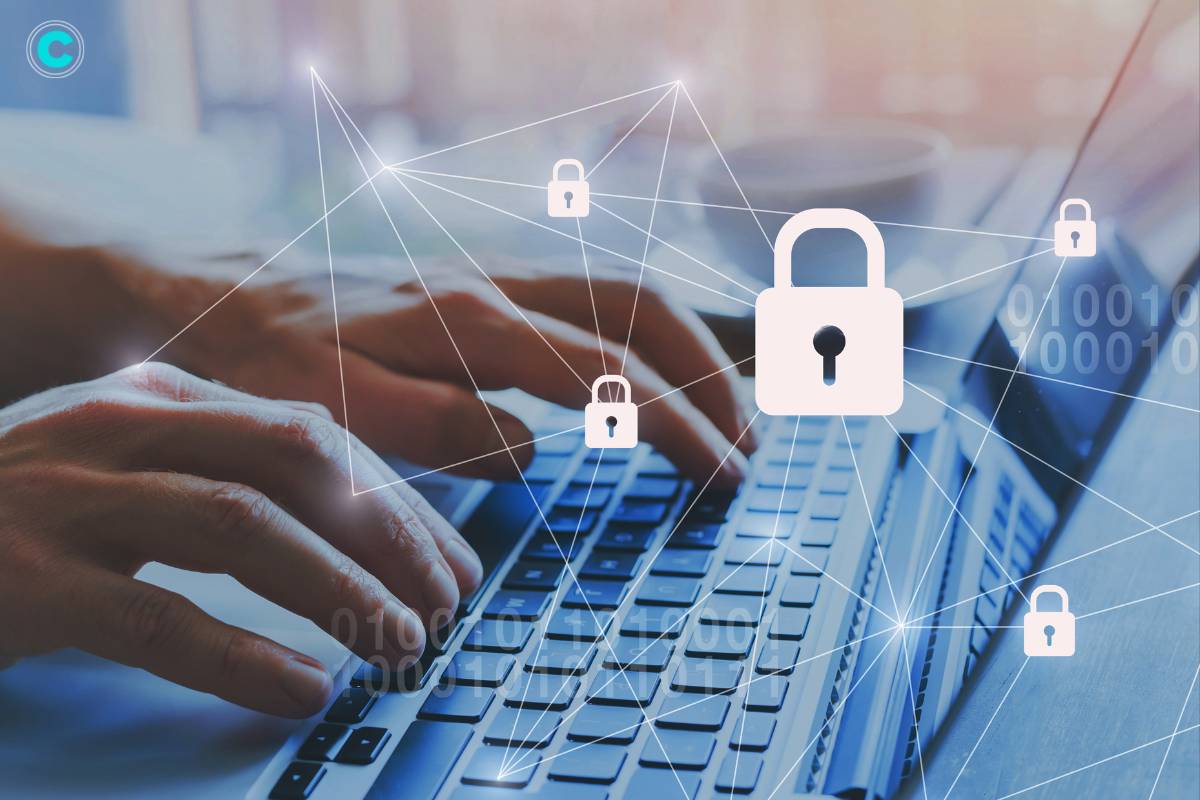In today’s digital world, keeping our information safe and private is really important. As we rely more on technology, it’s crucial to find ways to protect our sensitive data. One clever solution to this problem is called zero-knowledge proof. But what exactly is it, and how does it work? In this article, we’ll explore the world of zero-knowledge proof, explaining what it is, how it can be used, and how it might shape the future of cybersecurity.
What is Zero-Knowledge Proof?
It is a cryptographic method that allows one party (the prover) to prove to another party (the verifier) that a statement is true without revealing any information beyond the validity of the statement itself. In essence, it enables one party to demonstrate knowledge of a secret without disclosing the secret itself.
How Does Zero-Knowledge Proof Work?

At its core, it relies on mathematical algorithms to facilitate secure communication between two parties. The process typically involves three key steps:
- Initialization: The prover and verifier agree on a statement to be proven, along with a cryptographic protocol to facilitate the proof.
- Interaction: The prover engages in a series of interactions with the verifier, providing evidence to support the validity of the statement without revealing any sensitive information.
- Verification: The verifier analyzes the evidence provided by the prover to determine whether the statement is true, without gaining any additional knowledge beyond the validity of the statement.
By following this process, it ensures that sensitive information remains confidential while still allowing for the verification of important statements or transactions.
Applications of Zero-Knowledge Proof
Zero-knowledge proof (ZKP) is a cryptographic technology that allows the verification of information without revealing the information itself. It has a wide range of applications across various industries, providing enhanced privacy, security, and efficiency in digital systems. Let’s explore some notable examples of its applications:
1. Blockchain Technology
In the realm of blockchain, ZKP can be used to validate transactions without disclosing the details of those transactions, enhancing privacy and security on decentralized networks. By integrating ZKP into blockchain protocols, users can perform transactions without revealing sensitive information such as the transaction amount and sender and receiver addresses.
ZKP technology is relevant for decentralized exchanges (DEXs) as it allows clients to conduct transactions without revealing sensitive information. This addresses privacy concerns and contributes to the development of secure and confidential decentralized alternatives.
2. Authentication Systems

ZKP can also be employed in authentication systems, allowing users to prove their identity without revealing sensitive personal information. By utilizing ZKP, individuals can authenticate themselves to systems or services without disclosing unnecessary personal data, enhancing privacy and security.
3. Data Privacy
Organizations can utilize ZKP to protect sensitive data while still allowing for secure data analysis and collaboration. By employing ZKP, data can be securely shared and analyzed without revealing the underlying information, such as the transaction amount or sender and receiver addresses. This enables organizations to maintain data privacy while still benefiting from data-driven insights.
4. Other Applications
Beyond the aforementioned examples, ZKP has the potential to impact various industries. It can be used in voting systems to ensure the integrity and privacy of votes, supply chains to enhance transparency while protecting sensitive information, and in many other sectors where privacy, security, and efficiency are paramount.
Advantages of Zero-Knowledge Proof
Zero-knowledge proof is a cryptographic technique that allows one party, known as the prover, to prove the truth of a statement to another party, known as the verifier, without revealing any additional information beyond the fact that the statement is true. This powerful concept offers several key advantages:
1. Enhanced Privacy:
ZKP enhances privacy and confidentiality by enabling parties to prove statements without revealing sensitive information. For example, a user can prove that they are of a certain age without disclosing their exact age or any other personal details. This is particularly important in contexts where privacy is paramount, such as identity authentication systems or confidential transactions on blockchain networks.
2. Increased Security:

ZKP adds an additional layer of security to cryptographic protocols. By allowing parties to prove the validity of certain information without revealing any additional details, it reduces the risk of unauthorized access or data breaches. For example, ZKPs can be used to verify the correctness of transactions on a blockchain without revealing the secret information used in those transactions.
3. Greater Efficiency:
ZKP can be more efficient and scalable compared to traditional methods of proof. It eliminates the need for parties to exchange large amounts of data or perform complex computations to verify the truth of a statement. This efficiency is particularly valuable in scenarios where computational resources are limited or where real-time verification is required.
FAQs
1. Is Zero-Knowledge Proof Secure?
Yes, it relies on advanced cryptographic techniques to ensure the security and confidentiality of sensitive information.
2. Can Zero-Knowledge Proof Be Applied to Real-World Scenarios?
Absolutely! It has practical applications in various industries, including finance, healthcare, and cybersecurity.
3. How Does Zero-Knowledge Proof Benefit Blockchain Technology?
it enhances privacy and scalability on blockchain networks by allowing for secure and confidential transactions.
4. Is Zero-Knowledge Proof Difficult to Implement?
While ZKP involves complex mathematical concepts, there are libraries and frameworks available that facilitate its implementation.
5. Are There Any Limitations to Zero-Knowledge Proof?
While highly secure, it may require additional computational resources compared to traditional proof methods.
Conclusion:
Zero-knowledge proof represents a groundbreaking advancement in the field of cryptography, offering unparalleled privacy and security in an increasingly digital world. By understanding its principles and applications, individuals and organizations can harness the power of ZKP to safeguard sensitive information and protect against potential threats.


No comments yet